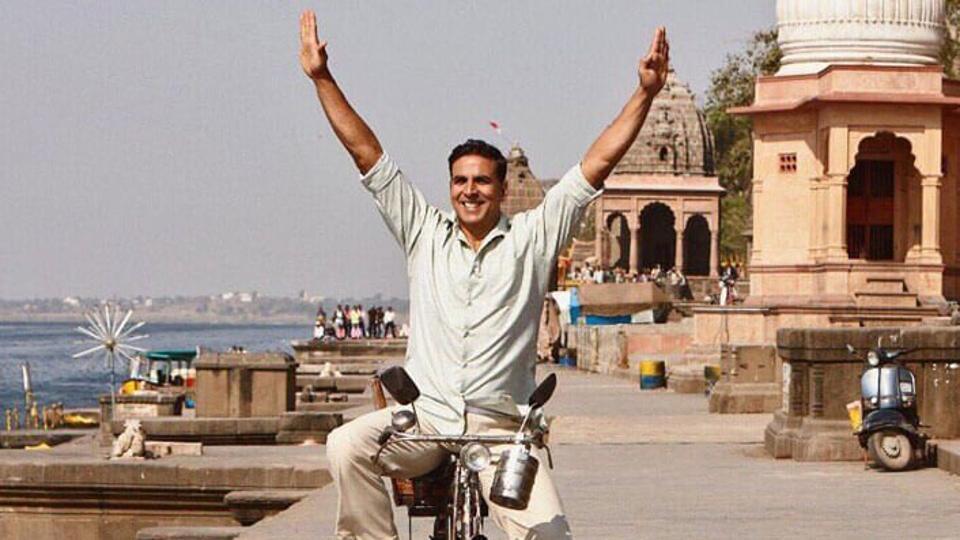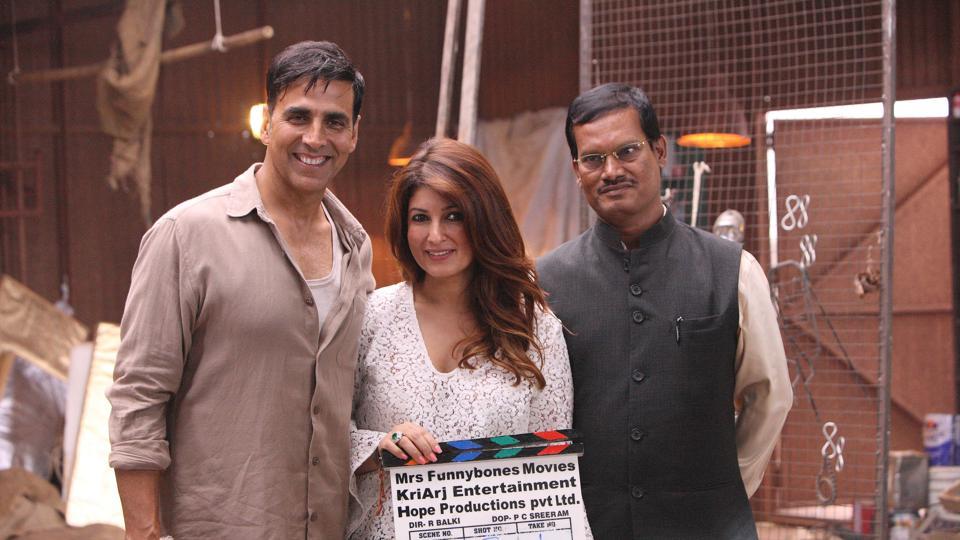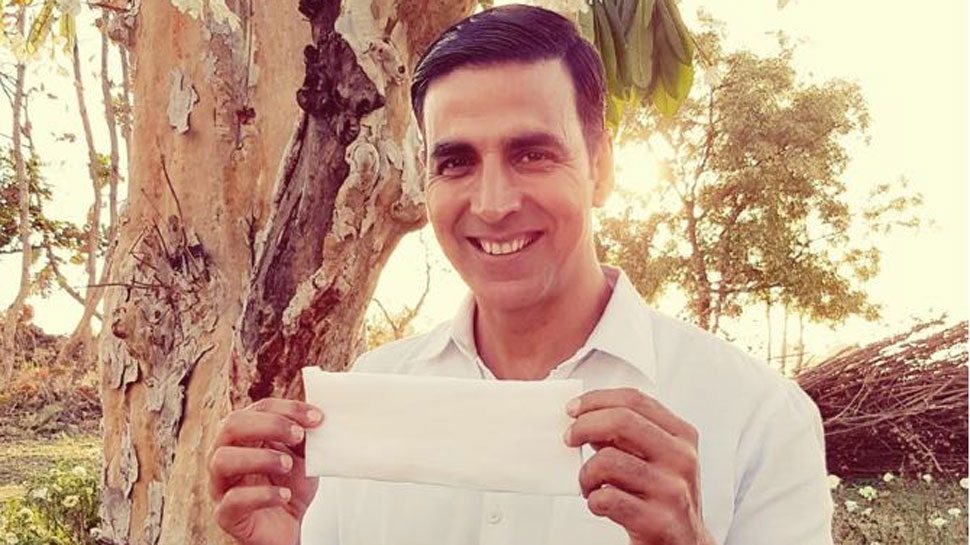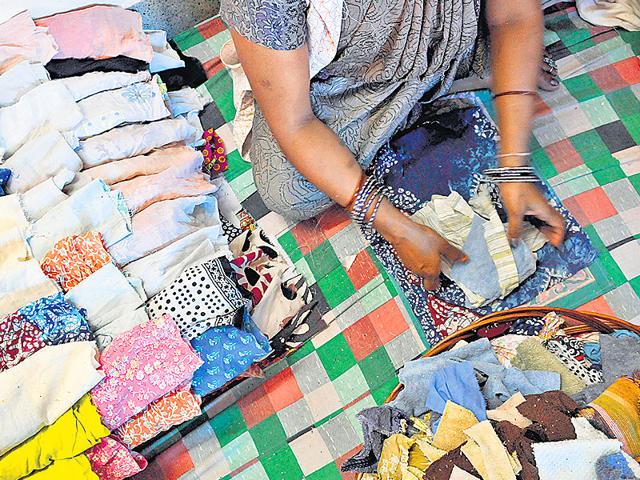The all-rounder of Bollywood does it again. With his natural and effortless acting combined with some well-timed emotional scenes, Akshay Kumar has proved he is India’s new superhero. Not some buffed-up villain punching machine (here’s looking at you Superman), but the real one who saves people. In this case one who preserves women’s honor. Based on the life-story of Arunachalam Muruganantham (damn that’s a long name), an Indian entrepreneur notoriously called the “first man to wear a sanitary pad”, Padman is a story that entertains and inspires at the same time. With an actor of Akshay Kumar’s stature, it was expected that the characters of Radhika Apte and Sonam Kapoor would get shadowed. However Radhika Apte’s brilliant acting gave her a memorable place in the movie. Sonam Kapoor as always tried to gain the spotlight with her out-of-timing dialogue delivery and cheesy jokes; but like always failed. All in all, R. Balki’s attempt to bring out a much-needed social message onto the screen was a success, tickling the funny bone and the emotional muscle at the same time. That being said let’s dig a little deeper to see what went right and what went a little wrong.
Maahwari or Mindworry?

Padman starts with marriage, the purest of humanity’s bonds which has been our society’s pillar for well over four thousand years. However, it eventually ends up in the gutter of the collective conscious, where what the Indian society deems to be impure ends up being, even if the claim has no logic whatsoever. Case in point: Padmaavat controversy. A devoted and caring husband Lakshmikant Chauhan (Akshay Kumar) just wants her wife Gayatri (Radhika Apte) to be happy. He does everything in his power to keep her comfortable, whether it be bringing her gifts or taking care of her day-to-day problems. However, one thing completely skips Lakshmi’s perfectly logical mind. Why does his wife have to spend five days every month out on the balcony, wiping herself with a dirty cloth? A simple and pure-hearted query becomes a full-fledged affair when he inadvertently challenges a dogma prevalent in the Indian society since Vedic times. You see, menstruation is not only a taboo in India but also a topic which nobody dares talk about in the open for fear of being ostracized. Something similar happens to Lakshmi.

When using his raw intellect, Lakshmi makes a simple cotton pad for his wife to use, he is ridiculed and cornered by the village. They think he is at best gone off his rocker or at worst a pedophile. When the innocent man asks why he can’t save his own wife from pain and humiliation, he is slapped with the well-rehearsed statements passed down from generation to generation.
“A man shouldn’t ask such questions from a woman.”
“It’s a private matter. Don’t try to put your nose in it.”
And my personal favorite, “A woman would rather die, than suffering such shame in public.”

Even when his intentions are pure Lakshmi is served the dish of superstition not only cold but smack dab in the face. The dark truth starts setting in. His dream of saving his wife from a life of pain and humiliation turns into a nightmare where he is thrown out of his own village. After facing many obstacles and getting pressed down by people’s mentality and society’s perceptions alike, India’s Padman ultimately succeeds in making a low-priced alternative to international brands like Stayfree and Whisper using only his wits and perseverance. This is the story of an Indian hero, and I think we as the audience should be proud of such a persona, and more so of Akshay Kumar for bringing a role like this to life.
Mrs. Funnybones’ First Time

For her debut production, Twinkle Khanna sure chose a popular and might I say untouched-issue to work with, which will surely give her cinematic baby a lot of mileage in the coming days. Not taking away any credit from the people involved in the making of the movie, I think Padman could have benefited from an experienced production house backing it instead of landing up in the experimental hands of Mrs. Funnybones. The problem with being a virgin in anything is that you tend to take every step slowly and surely, fearful you might screw something up. The same whiff came from the twinkle of Twinkle’s eyes which I’m sure she wanted to succeed, judging by the endless investors she gathered to finance her venture. I mean with the number of production houses involved in Padman, we could’ve made another part of the Bahubali series, and saved some change.
Women Em’pad’ment

Maahwari or menstruation (as it is commonly called) has always been taboo in the Indian Society. If you were to believe the Manusmriti (a famous Hindu scripture), menstruating women are not only impure in the body but also the soul. Hence they were -and still continue to be- not allowed to enter the kitchen or temple during that difficult time. Of course, there is a logical reason behind it. During menstruation, a woman is weak and in pain. Hence it is better for her to rest than to perform daily chores like cooking food and going to the temple to pray. Remember that the times when these rules were constructed there were public bathing pools and no private bathing facilities. It was only natural for people to fear that these ponds may get polluted by something they didn’t understand. However, the way a perfectly natural phenomenon is being handled in the 21st century is not only dumb but appalling. I mean a woman’s bleeding vagina is considered to be nothing short of Lord Voldemort. You can’t call it by its name (just like ‘condom’ you know). And uttering even a single syllable about menstruation can cause a decent and respectable human being to start behaving like a 2-year-old.

Anyway, after brilliant movies on current issues like the Public toilet problem and various others, it was high time that one addressing this one took shape. Portraying the life of Arunachalam Muruganantham (seriously how many syllables does this name have), Akshay Kumar and the plot subsequently weave the story of a man who asked the question that no one dared utter in this pristine Indian society. He wanted to know why his wife, sister, and other women around him are ashamed to admit that once every month they bleed out of their vagina and naturally need a remedy (like we eat medicines for fever you know) that can help them during that time. Rejected and dejected at every milestone Muruganantham was seen with suspicion, even by his wife who he was ultimately trying to help. He was termed to be lustful and a rapist. Quite common in India if you ask me. People who are actually rapists are roaming free and the man who is trying to help your sisters and daughters is publicly shamed and claimed to be against our so-called Sanskriti. I mean grow some cojones man.
What Can We Do?

What is the difference between intellect and logic? Arunachalam Muruganantham did nothing out of the ordinary. He just stood up and challenged a logical idea that has lost its relevance today. In this age of feminism and girls being given equal status everywhere, why are these orthodox dogmas followed? I am quite sure people reading this would agree with what I have pointed till now. But I’m afraid that is not enough. Simply because the girls reading this article on their computers, laptops, or smartphones will probably be aware of healthy menstruation practices and will already be using brands like Stayfree and Whisper.

But what about the 70 percent of India’s population which resides in the rural areas and have no idea there is a healthy option beyond the dirty cloth hanging on their balcony’s wire. What about them? As the more enlightened ones (even though in this aspect only) we should, in turn, teach them that there is no shame in discussing something as natural as this and adopting a practice which ultimately might help in saving a life of their household. Modern women living in Tier I and Tier II (I hate that term by the way) cities should pass off this knowledge to their less fortunate rural equivalents who didn’t inherit it from their literate parents. The taboo needs to be lifted first and then the illiteracy. Rest is in your hands.
Rating: 4/5

